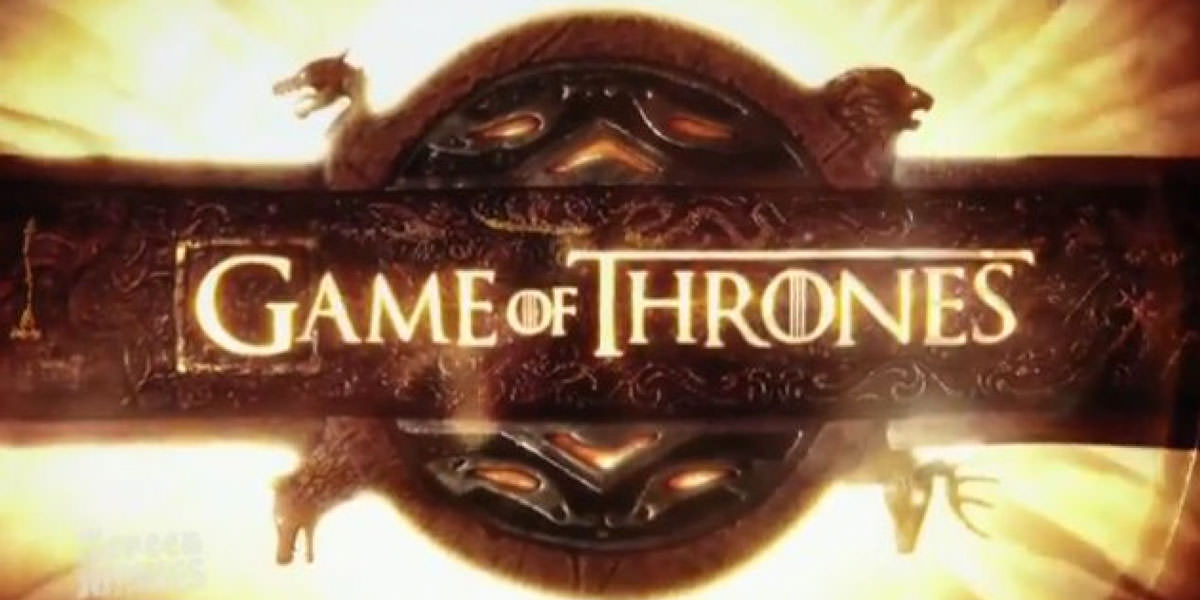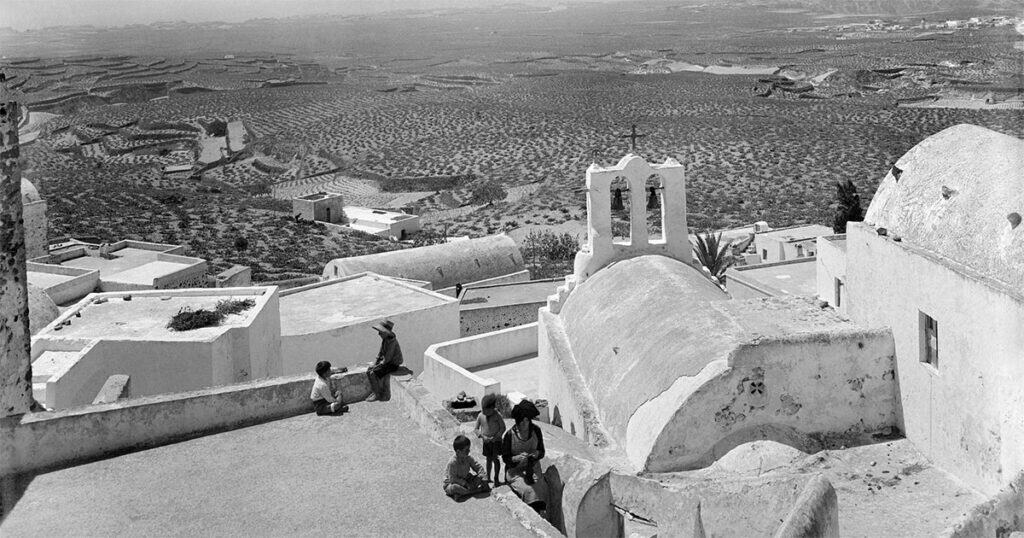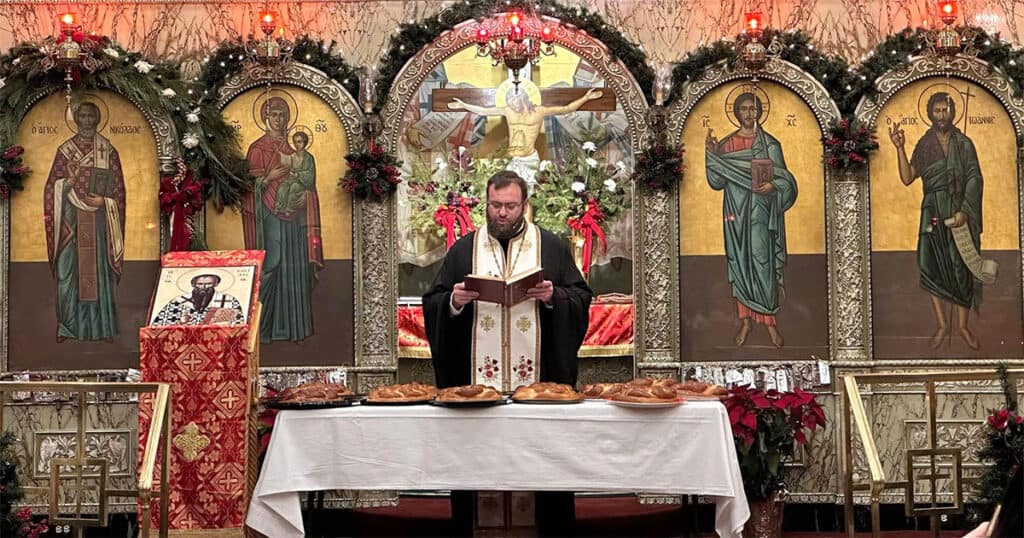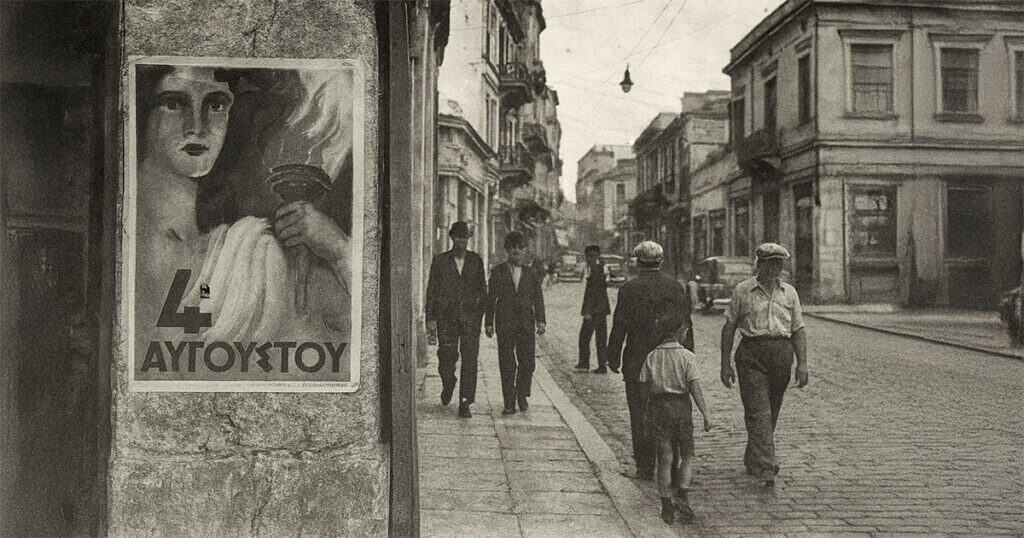You catch yourself craving for “success stories”. You keep seeking them, and when you find them you embrace them, draw strength and inspiration from them, and be reminded why you left, what dream you were chasing, why you remain abroad and what you are still hoping for.
By Lida Aglaia Aslanidou
“Success stories” are perceived differently by each person, with the only common denominator being the fulfillment of some sort of dream.
My latest such discovery is Michail Charalambidis. Who was not really a discovery, rather the result of scrolling content on my Facebook newsfeed. One phrase next to his name made me stop: Game of Thrones.
We went to the same high school, with Michail being a year older than me. Our paths met on theater class; only difference was that for me theater class was just an hour of energy relief, while for Michail it was one of his initial, conservative steps towards the fulfillment of a goal. I think this difference was obvious: in every performance, I was happy to appear on stage, and Michail was sitting patiently in a corner, his arms crossed over his chest and the palm of his hand holding his chin, thinking and gathering feedback for his work. Never lenient with himself, always explaining and showing patience with others. I lost track of him back then, until a few summers later I would hear stories from common friends who were happy to act in the first films he shot in Greece; one month of coming and going to Lagadas, Thessaloniki. Their comments always focused on his professionalism, his energy, his punctuality and his interest in everyone who worked with him – cast and crew. For those people and anyone else wondering, I would like to inform them that -spoiler alert- Greece still plays a part in his plans:
“I believe Greece is still unexplored territory as far as the locations it can offer for filming. Very few international films have been shot here. Therefore, I believe there is great potential for innovation and experimentation.”

You left Greece when you were very young. Did you already know you wanted to be a filmmaker when you left? Did you feel Greece was not the right place for you to nurture your passion for film making?
I always liked storytelling, and anything creative in general. I grew up exposed to american film making, so I knew I wanted to be close to the best of the best.
In the recent years, Greece has produced several good films (e.g. Dogtooth, Attenberg) some of which have also made it internationally. Are there any Greek filmmakers you would like to collaborate with?
I do think Greek productions have started becoming better, and able to compete with European and even american productions; both in terms of visuals and storytelling.
As far as collaborating with other filmmakers is concerned, it’s a tricky question. Being a filmmaker or in my case a director, means you are the captain of a ship and usually there is no room for another captain. It’s just how it is. Unless you are the Coen brothers or the Wachowski siblings, chances are a movie will only have one director. However, I would certainly enjoy working on a Greek set in any capacity. I haven’t done this yet.
You’ve said: “I believe that two people working together can produce the work of three people working separately.” Greeks have often been (self)-criticized for being selfish and competitive when it comes to collaborating and supporting each other domestically or abroad. What has your experience been with the Greek filmmakers’ network? Has anyone shown interest in your work?
It’s a bit early to tell if anyone is actually interested. I think most people in the industry care about working with a ‘name’, with someone who can generate some buzz. It’s not a phenomenon associated just with the Greek community, it’s how the entertainment industry works. However, I believe there are Greek producers interested in collaborating with other filmmakers who have studied and worked abroad, and are willing to return to Greece and produce films there. I think some Greek production companies have realized that a non-traditional approach to filmmaking could regenerate cinema in Greece. It’s hard to find Greeks abroad though who have settled there, learned the American way of making films and are willing to leave all this behind, work within the Greek reality, get paid way less and do a risky project that could end up not working properly. I am very willing to do that. I am certainly not the most skilled filmmaker and have lots to learn, but I think for the time being there’s been one Greek production company that saw some potential in me. I am very excited to see where this will go.
What is the most interesting or useful feedback you have received about your work?
“A film is a visual story more than a verbal one”. What do I mean by that? Many young filmmakers fall in this trap. I fell in it too, and I am trying very carefully not to make the same mistake again. I used to write long dialogues explaining the backstory and how characters felt and blah blah blah… images are a thousand times more interesting. The phrase “a picture is worth a thousand words” is a very true one. My first movie “Years of Youth” was supposed to be taking place in a world where a virus kills off anyone older than thirty, and therefore the world has turned into an unstable society ruled by young people who don’t know how to run it; which results into violence and terrorism. Now this might sound exciting to see, but I instead had my characters talk about it. Some audiences told me “We don’t understand why your characters are suffering, they seem well off”. If only I had actually written the script in a way we see them experience all those horrible things, then my audiences wouldn’t have this reaction. The value of showing versus explaining is a general lesson one can apply to anything. I don’t want to demolish the use of dialogue, as we have seen some great ones. But overall, if you want to communicate suffering, have your characters suffer, and if you want to communicate joy, have them be happy instead of having them say they are happy.

What has been the most rewarding moment in your development so far?
There has been a few, but the most important one was when the VFX producer of Game of Thrones invited me back for the production of Season 6. It was a proof that working hard and doing that extra mile pays back.
What do you hope people will take away from seeing your films?
There is nothing specific I hope they walk out with. Movies speak differently to different people. It’s good to know they got something though. When I screened “The Games We Play”, a movie about students trying to be involved with the management of their college and ending up causing more trouble than good, a few students, involved with the running of Hampshire College, walked out of the screening and told me that they were now questioning the way they run things. The movie offered them a different perspective. Others walked out thinking about what can lead a student to suicide, as that was another theme in the movie. Overall, as a writer/director I focus on certain themes and present them in an educational manner. There is not a specific answer I am going after. I mostly try to trigger thoughts on a topic. My favorite topic is “what are people capable of when circumstances get rough”. We all believe we live in civilized societies, but I think that’s true for as long as there is a system. Take that away and interesting (and horrible) things will start happening. I love throwing my characters in those circumstances. Another theme I love is breaking the idea of black and white. Choices and circumstances are almost always gray. There are no good and bad characters, just people making a sequence of choices. This is a topic Game of Thrones has developed really well.
From Hampshire College to Game of Thrones. Take us through the highlights of this journey!
I graduated from Hampshire in May of 2014. I was unemployed for about two months, waiting for my working visa to arrive. That was a very slow period, where I was constantly thinking of leaving the USA. In August I started working for Douglas Trumbull, a master of VFX with two oscars under his belt, and a dream of making the filmmaking experience better. We made a promotional video for his new technology. I attended the latest Toronto International Film Festival, as well as some special screenings in LA, where our work was screened. For a month I worked part time for him and full time as a camera assistant in a production in Western Massachusetts. And then I was hired by Steve Kullback, the VFX producer of Game of Thrones, flew out to LA on the 31st of December (I was so tired I slept through New Year’s eve) and started working on January 5th until mid May of 2015. I did pretty well, and will be working on season 6, starting June 3rd for seven months. What comes after? I have no idea, but it will certainly be something exciting.

You are part of the VFX team. How is the ‘raw’ material that arrives at your team? Is there room for spontaneous creativity or are you following a specific recipe that’s been given to you?
The VFX recipe is pretty complicated and fun. The VFX department is not working alone. No department is. Therefore, when you are part of such an enormous team, you have to follow a pipeline. It’s hard enough when someone within the VFX department makes a mistake. Certain things are expected from everyone, but the way someone chooses to execute a task can be very creative. And that’s where most creativity is needed… for problem solving. When we mention creativity, we think of creating something new whether it’s an original script or food recipe or design a new house, etc. However, discovering a solution for a problem, finding a way to work with a limited budget, to organize hundreds of people can be very creative as well. So I’d say that working on Game of Thrones is both. We had to find a way to export shots in the office, how to apply post moves or how to set up a presentation for producers. There is no pipeline for those things. I had to come up with solutions and the way didn’t matter as long as the job was getting done.
In terms of the raw VFX shots, audiences only see the final result, the end of the story if you may. Every shot has a story behind it. We review shots by switching back and forth, between the raw and latest version and it always amazes me how much technology has evolved. I can’t get more specific, but there are times I scratch my head thinking “how on earth did they do that?”
How has it been as an experience working for this show? What are your least and most favorite parts of it?
Tricky question… I love the teamwork above anything else. The team behind every film or show is like an army, organized into divisions with a respected hierarchy. Or you can think of it like a well-oiled machine producing a complex project. I am not sure about every department, but the VFX department was the most organized team I ever worked for. I start realizing that many films (and other team projects) fail due to lack of proper collaboration and communication between the members of the team. It’s not easy communicating big amounts of information in a short period of time, and it takes skill to be good at it. What I love about working on Game of Thrones is that I get to learn those ways from the best of the best.
At the same time what I don’t like is when we have to stand by. It’s not a problem associated solely with Game of Thrones. Every production has it. There are times when the entire team is waiting for someone somewhere else to make a decision. Sometimes we are not even sure if it’s worth waiting for that decision to be made. Other times you have to wait in case you are needed. It comes with the job and I shouldn’t complain. I wonder if there are ways to fix it… this should be my next mission in the office.

Who has been the biggest help in your first steps in film making?
Anyone who believed in me and helped me. I know it’s a general answer, but it couldn’t be anymore true. Filmmaking is a team sport and you need to create a team in order to play. A filmmaker without a team is not going to succeed. When I attempted my first feature length film while in college, I realized I wasn’t 100% prepared for the production. I had this epiphany after the first day of shooting when production was delayed by an unexpected summer storm. That night I almost had a heart attack thinking how every day will be a disaster, nothing will work on time and eventually my cast and crew will bail on me due to lack of organization. I tend to exaggerate when I get nervous. So I decided to stop production now before it was too late and had already wasted a week of everyone’s time. When I proposed to stop, my team stubbornly insisted that we move forward… and so we did. I think if my cast and crew hadn’t believed in me so much, I wouldn’t be giving this interview now. This was three years ago, but my first feature was a breakthrough for me and my first solid career step.
Do you see yourself coming back to Greece to make films?
I have stories I want to tell here. Some are fictional but others based on real events. Hollywood has been benefiting from Greek mythology and history for decades. We should be doing the same. I know it takes a huge budget to tell the story of the 300 Spartans, but it’s all about perspective. A smart writer and a creative director will find ways to tell any story. It’s such a challenge to work with very little and it’s a challenge someone will have to accept if he wishes to make a movie in Greece. That’s my challenge and I hope to be dealing with it soon.

This article was originally published in New Diaspora and is reposted with the publisher’s permission.








